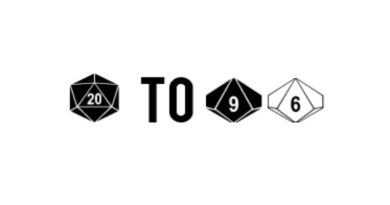Grog’s House Rules – Supernumerary Spells and Other Magic-User Rules
Hey, how can the Ref make it more fun to play the BX Magic-User? You can try it the Grog way by bolting on a few extra house rules. Lets get to it!
Change the Weapons
The MU may now use a sword, or magic sword, or staff, in addition to a dagger. That’s right we’re Gandalfing this character class.
Chuck out the Spell Memorization Rules
Memorization of spells is no longer required. Spells no longer vanish from the Memory of the Magic-User the moment they are cast. The Magic-User may cast any spell they have recorded in their spellbook. The spellbook is now used by the Player and Ref to record what spells the Magic-User knows.
A Magic-User may record into their spellbook spells which are found on scrolls if they are equal to their current level. Per the rules, the spell Read Magic is required to identify spells on a scroll. The act of recording the spell from the scroll does not use up the spell on the scroll.
Change the Hit Dice
Drop d4 as the minimum Hit Dice for Characters, therefore change the Magic-User’s hit dice type to d6 per “classic rules”.
Supernumerary Spell Use
The Magic-User has a spell allotment per level, what they are granted in their spell book and are able to cast. In order to keep things simple we are going to appropriate the “level” of the spell for use as points:
a level 1 spell is worth 1 point,
a level 2 spell is worth 2 points,
a level 3 spell is worth 3 points,
a level 4 spell is worth 4 points,
a level 5 spell is worth 5 points, and
a level 6 spell is worth 6 points.
The normal rules of spell casting still apply. That is the Magic-User is capable of casting those spells normally allotted to them by the rules. However, they are also able to cast additional Supernumerary Spells beyond those normally granted and this is where the spell points come in; using the following rules:
After each Supernumerary Spell is cast the Player must make a Saving Throw VS. Spells. If the Saving Throw fails the Player must temporarily deduct the point value of the spell from the Character’s CON. Supernumerary Spells may not be cast when the character’s CON reaches a value less than 9. CON is recovered simultaneously and in addition to Hit Points at the same rate, 1-3 points per day of rest. The temporary reduction of CON has no effect on total Hit Points or Resurrection.
Example of Play I
Ferd Fungus the First Level Magic-User casts his Sleep Spell laying low some Goblins. Ferd has already been on a few adventures and found some scrolls with First Level spells. The Magic-User has recorded these spells into their spellbook; thus Ferd knows several spells even though the First Level Magic-User is only normally allowed to cast one spell. The Player then elects to have Ferd cast a Supernumerary First Level spell, Detect Magic, in the following round and declares its use per the normal sequence of play. Ferd casts the spell (following the extant rules and sequence of play) and then must make a Saving Throw VS. Spells, 15 or better. The Player rolls 12, fails, and 1 point is temporarily deducted from CON because a First Level Spell is 1 point. Ferd’s CON is 11, and it is temporarily reduced to 10. This temporary reduction has no effect on total hit points or resurrection.
The CON and point combination act together as a brake on the potential endless use of magic. When Ferd reaches 8 points of CON the Magic-User can no longer cast Supernumerary Spells. Ferd must later rest to regain Hit Points and when this happens the character also recovers 1-3 points of lost CON per day of rest.
The element of chance, in the form of the Saving Throw VS. Spells, adds ambiguity to the consequence of supernumerary spell casting. Players love it when they have a chance to dodge an otherwise certain fate. This is a lot more fun than simply deducting points outright from CON.
Example of Play II
Ferd Fungus has progressed to 9th level and is now a Wizard. Note that the Magic-Users CON has not changed. When Ferd casts a Supernumerary 5th level spell the player must make a ST. VS. Spells, 12 or better. The Player rolls 11, fails, and 5 points are deducted from Ferd’s CON of 11, 11 – 5 = 6. Ferd may no longer cast Supernumerary Spells. From this it may be deduced that there is lesser penalty and greater advantage for Ferd in choosing to cast lower level Supernumerary Spells.
That’s it!



Reminds me in part of the 3.xE Rules and how the did the Sorcerer (improved weapon selection, increased hit die, your spell list is your spell templates and you energized them with your power so you could choose which of your spell you’d use) and 2E Players’ Option: Spells & Magic (Spell points and the Channeling option for spell casting).
Those changes were made to make a somewhat fight-capable/survivable caster. It also ensured that once in a while, some utility spells would be used (because normally you didn’t know when you’d need them but you almost always needed attack spells and defenses, so often with strict memorization, Magic Users eschewed utility spells) – that flexibility is a great improvement for the caster and it worked well in play.
Channeling was interesting because it was structured such that your highest level spell was exhausting (you’d be tired after one cast (some penalties) and a second could knock you out or even risk your wellbeing), the second highest spell level you could cast would be tiring but not quite as much, the third most powerful had a minor impact, and anything below that was trivial.
This makes good sense from the fiction – your hardest spell level, based on where you are in the your character’s lifespan, is you pushing your ability to the maximum.
Spell points were not 1 per level though.
Spell Fixed Free
Level Magick Magick
cantrip — 1
1st 4 8
2nd 6 12
3rd 10 20
4th 15 30
5th 22 44
6th 30 60
7th 40 80
8th 50 100
9th 60 120
There were also optional ways to reduce SP costs – longer casting time or reduced effect – and ways to increase effect at a higher cost of SP, also optional.
If you also used Player’s Option: Combat and Tactics and used the fatigue system there for fighting fatigue rules, the fatigue from spell casting in channeling could blend. So if you had to run or fight and then cast, the combination could really tire you down.
I am completely unfamiliar with 3E. From your description it seems like a replacement for the previous magic systems, which then sort of prompts the question what should magic be like? I guess I really fall into the camp of Holmesian revisionists. I wrote an article a while back about Read Magic and scroll use. I like Holmes a lot as it cleaves closely to the original game.
I like this, as it is closervto how magic works in both GURPS and DCC. Not to say that it is derivative, but that great minds think alike!
I am unfamiliar with GURPS and DCC. My approach is to add something that is easy to incorporate into play, uses existing rules (with a couple of exceptions), and is not hard to remember. People have been house-ruling the magic system for years for various reasons.
glad you like it! 🙂 I’ll check out DCC. By the way, the original RuneQuest’s magic system is really interesting and I almost switched to RQ back in the day. Totally different paradigm!
By the way, Erin wrote a really great article about an alternative magic system here https://breeyark.org/another-way-of-spellcasting/